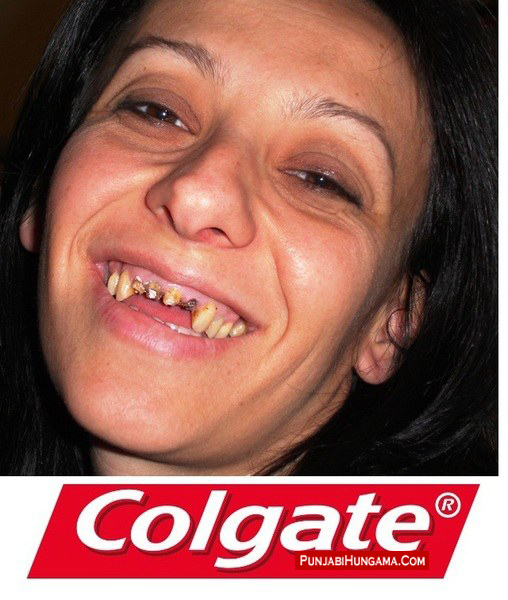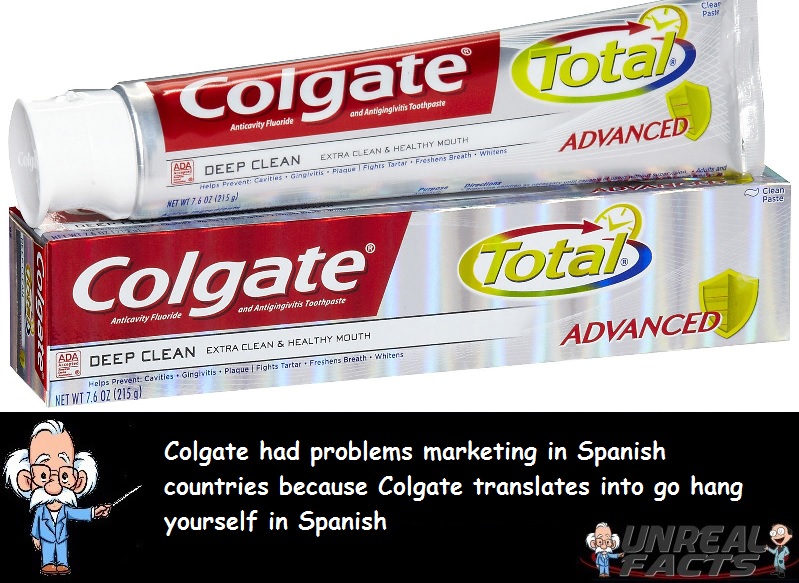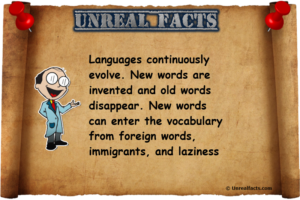Wait just one God damn minute. Colgate in Spanish translates into “go hang yourself,” like really? In a bizarre twist in the world of translations this is actually the case, but not always, and we will explain.
Most of us are familiar with poorly translated directions or instructions. Under most circumstances these mix ups between languages are accidental, and a cause for great enjoyment at the translators expense. But every now and then a translation comes along that was not accidental at all, and means something completely different. This is the case with Colgate which translates into Spanish as go hang yourself.
So remember in the first paragraph that we said it’s not always the case? You might be thinking how can this be? Spanish is Spanish, and a translation is a translation, no matter which way you try and twist it. Well, just as with English, Spanish has different dialects, and the way the words are pronounced can give a totally different meaning.
For the vast majority of the Spanish speaking world Colgate is pronounced in the Spanish pronunciation rules. Colgate is pronounced as “Kohl-GAH-teh”, while go hang yourself is pronounced “KWEL-gah-teh.” Do you see the difference? Two completely different words, although very similar. However, in some regions of the world both words are pronounced the same, Such as in Argentina and some poorer regions of South America, giving the impression that Colgate means to go hang yourself in Spanish. So how do the locals view such a peculiar translation?
Just like English speakers do when a word is lost in translation. Colgate, even though it was one of the first toothpastes in many countries, and is known as a toothpaste, has become the butt of many jokes. A lot of native Spanish speakers will, and have made jokes about the world famous brand for dental hygiene and the threat of death.
SOURCES









